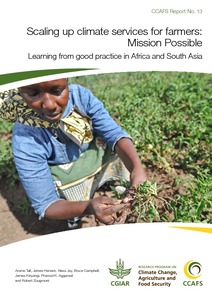Agricultural Production, Dietary Diversity, and Climate Variability
Nonseparable household models outline
the links between agricultural production and household
consumption, yet empirical extensions to investigate the
effect of production on dietary diversity and diet
composition are limited. Although a significant literature
has investigated the calorie-income elasticity abstracting
from production, this paper provides an empirical
application of the nonseparable household model linking the






